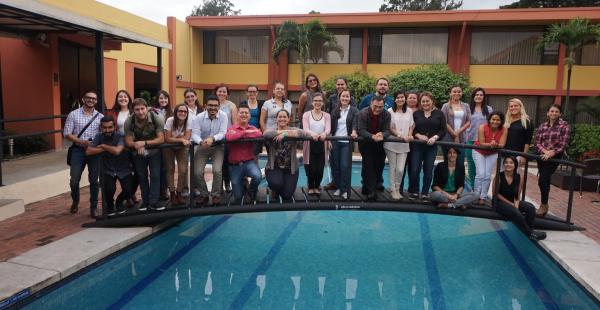
Costa Rica’s municipalities unite against climate change
In order to support their country’s goal of carbon neutrality, municipalities from all over Costa Rica are rallying to play their part: under the nationwide ‘Programa País Carbono Neutralidad 2.0’, six communities are currently measuring their greenhouse gas emissions, determining which sectors to prioritise and developing mitigation measures to implement in the future.
Costa Rica has been attracting its fair share of international attention ever since it announced plans to become carbon-neutral in the medium term. The Central American country has developed several sector-specific strategies to reduce its emissions, including so-called Nationally Appropriate Mitigation Actions in the coffee and livestock sectors. Since 2012, the country has been promoting its ‘Programa País Carbono Neutralidad’, a national program that helps companies of all sizes to calculate their carbon footprint, develop and implement greenhouse gas (GHG) mitigation measures and achieve carbon neutrality.
In September 2017, Costa Rica’s Ministry for Environment and Energy (MINAE) announced a new category in the revised ‘Programa País Carbono Neutralidad 2.0’ designed specifically for municipalities. It is aimed at motivating local actors to help the country achieve its ambitious climate goals by determining GHG inventories and potential areas for mitigation at municipal level before carrying out mitigation measures.
Over the months that followed, 20 municipalities heeded the call for action issued by the national Climate Directorate (DCC) and the Deutsche Gesellschaft für Internationale Zusammenarbeit (GIZ) GmbH, submitting their proposal for entering the new category of the ‘Programa País’. In December 2017, 40 officials from 14 municipalities were trained in measuring their communities’ carbon footprint. Six pilot municipalities – Belén, Desamparados, Golfito, La Unión, Monteverde and San José – have now been selected to receive technical and methodological support for collecting data, identifying priority sectors for implementing mitigation activities, and determining financing mechanisms up to June 2018.
These six municipalities are currently defining the scope of their GHG emissions inventories as well as their priority sectors (energy, transport, waste, agricultural, industrial and commercial). In a second step, they will determine potential mitigation measures, such as optimising the treatment of organic waste and improving public transport in their municipality. The participants’ experience and examples of good practice will be collected and recorded systematically in order to make the process more straightforward for other communities that might be interested in tackling their carbon footprint in the future.
The inclusion of municipalities in the ‘Programa País’ marks an important milestone on the road to Costa Rica’s goal of carbon neutrality given the significant potential for reducing GHG emissions at municipal level. The initiative is also an opportunity to strengthen dialogue between national and municipal actors, linking mitigation actions with benefits that will be valued by both municipalities and their residents. The technical support for the six pilot municipalities is being financed in collaboration with the GIZ-led projects MiTransporte, Acción Clima II and Viclim, which are currently under way in Costa Rica.
Contact Information:
Daniela García: daniela.garcia@giz.de and Annika Berlin: annika.berlin@giz.de

